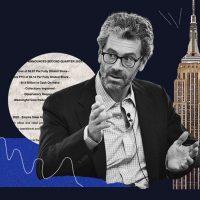The Empire State Building may be at the nexus of several issues putting pressure on commercial landlords.
The landmark tower’s reliance on tourism to drive revenue to its observation deck and the shift toward remote work or satellite offices could make it more vulnerable than some of its peers, according to the Wall Street Journal.
Read more



As tourism has fallen, revenue from the building’s observation deck has fallen to a mere $86,000 last quarter, down from $32.9 million during the same time last year, according to Empire State Realty Trust’s latest earnings. The real estate investment trust owns the iconic tower along with 19 other properties.
Meanwhile, the building’s office tenants are largely made up of smaller companies, compared to competing office towers, such as Hudson Yards, that have locked big companies into long-term leases, according to the Journal. Those smaller companies are more vulnerable to major economic shifts, and may not have as much capital to sustain operations during a longer period of distress.
Back in May, activist investor Jonathan Litt said he was taking short positions in New York City landlords, including ESRT, SL Green Realty and Vornado Realty Trust. But many unanswered questions remain over the future office leasing in New York.
Anthony Malkin, ESRT’s CEO, rejected the idea that his building represents the wider woes of the office, retail or tourism sectors.
He told the Journal that two-thirds of the office tenants at the Empire State Building lease one floor or more, and office rent collection in July rose to 91 percent from 83 percent in June. Malkin maintains that Empire State’s low debt and high occupancy rates in the iconic skyscraper position it well.
“I don’t think we’ve ever been as prepared for a down cycle as we are now,” Malkin said. [WSJ] — Erin Hudson
